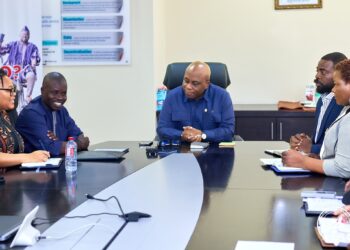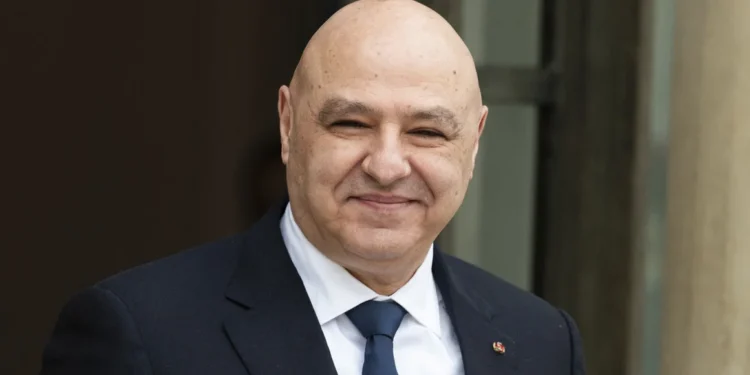The Director-General of Internal Auditing – Dr. Eric Oduro Osae has made a thought-provoking address. Dr. Osae Oduro underscored the pressing need for comprehensive reforms in the internal auditing processes within Ghana’s public sector.
Dr. Oduro began his address by reaffirming the constitutional imperatives of governance in Ghana.
Dr. Oduro highlighted the crucial role of internal auditors in maintaining transparency and accountability in governance, emphasizing that these principles are not mere formalities but fundamental requirements enshrined in the Ghanaian Constitution.
“Our constitution calls for probity, a freedom which we have justice and accountability.”
Dr. Eric Oduro Osae the Director-General of Internal Auditing
These principles, he noted, are not just introductory statements in the preamble but are deeply embedded in the nation’s legal framework.
“Nobody is doing anybody a favor by accounting, it is a constitutional requirement.”
Dr. Eric Oduro Osae the Director-General of Internal Auditing
Dr. Oduro stressed that the accountability of public officials is a mandated obligation rather than a voluntary or optional practice. The core of Dr. Oduro’s address focused on the urgent need to pass the Internal Auditors Service Bill. This proposed legislation, according to Oduro, is critical for enhancing the effectiveness of internal audits and addressing corruption within the public sector.
By granting internal auditors the necessary powers and autonomy, the bill aims to fortify their role in preventing and detecting financial irregularities and misconduct. Dr. Oduro’s call for reform also includes a significant shift from reactive to proactive measures in audit practices. He criticized the current system where external auditors are often engaged only after irregularities have already occurred.
“The bottom line is that we should emphasize preventing issues rather than allowing the horses to bolt before we chase them.”
Dr. Eric Oduro Osae the Director-General of Internal Auditing
This shift in focus is essential for addressing problems before they escalate into more severe issues. Oduro highlighted that rather than tightening control systems and empowering internal auditors to prevent irregularities, the emphasis has been on external auditors who come in only after the harm has been done.
“Instead of tightening control systems and empowering internal auditors so that they would be able to prevent these irregularities, we rather empower external auditors, and they come in when the harm has been done.’’
Dr. Eric Oduro Osae the Director-General of Internal Auditing
Dr. Oduro’s address also underscored the need for structural reforms in the internal audit processes. He called on the government to expedite the restructuring of the internal audit framework and to ensure that necessary amendments to the Internal Audit Agency Law are enacted swiftly.
‘We are calling on the government to tighten internal audit laws by completing the restructuring of the internal audit processes by ensuring that amendments to the Internal Audit Agency Law are passed quickly.’’
Dr. Eric Oduro Osae the Director-General of Internal Auditing
This legislative change is crucial for establishing a robust framework that supports the effectiveness and independence of internal auditors.
In addition to structural reforms, Dr. Oduro emphasized the importance of improving the conditions of service for internal auditors. He argued that enhancing these conditions is vital for preventing professional abuse and ensuring that auditors can perform their duties effectively without undue influence.
“We are also calling on the government to improve the conditions of service for internal auditors to prevent them from being professionally abused.”
Dr. Eric Oduro Osae the Director-General of Internal Auditing
Dr. Oduro emphasized adequate resources, fair compensation, and strong legislative support are necessary to ensure that internal auditors can fulfill their role as effective gatekeepers of public resources.
Dr. Oduro’s comments reflect a broader recognition that effective governance requires more than just reactive measures. It demands a proactive approach that anticipates and mitigates risks before they develop into larger problems.
Accountability and Transparency in the Public Sector
However, Dr. Oduro emphasized that meaningful governance must be grounded in accountability and transparency.
“Ghana, governance without accountability is meaningless and useless.”
The essence of Dr. Oduro’s address is a call for a systemic transformation in the approach to auditing and accountability. He emphasized that proactive measures, legislative reforms, and improved conditions for auditors highlight the need for a shift towards a more robust and preventive approach to public sector oversight.
By championing internal audit reform, Dr. Oduro advocates for a governance framework that not only reacts to issues but actively works to prevent them, ensuring a more accountable and transparent public sector.
Dr. Oduro’s address is a powerful reminder of the importance of internal auditing in maintaining the integrity of governance.
Dr. Oduro calls for immediate action to pass the Internal Auditors Service Bill, restructure audit processes, and improve auditors’ conditions is a crucial step toward fostering a culture of accountability and transparency in Ghana.
As the nation grapples with challenges related to governance and corruption, Dr. Oduro’s insights provide a clear path forward, emphasizing the need for proactive, well-resourced, and independent internal audits to safeguard public resources and uphold constitutional principles.
READ ALSO; Social Media Users Urged to Refrain From Attacking, Insulting Personalities





















